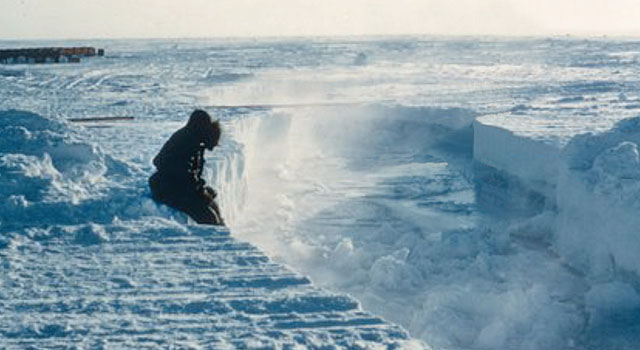The Arctic is screaming. Can you hear her in the floods of Houston, the drought in California and the epic snowfall in Boston this past winter? In Alaska, the only Arctic state in the United States, it was a record-smashing 89 degrees in Anchorage at 6:30 at night on June 15, 2015, one of several 80 degree days. Historically, June temperatures fluctuate between the mid-60s to mid-70s. Currently, 238 wildfires, burning 408 square miles, are forcing the evacuation of residents in several communities. Fifty-seven new fires ignited on June 22.
Our collective failure to limit greenhouse gas emissions has pushed atmospheric concentrations of carbon dioxide — the primary driver of climate change — to levels not seen for millions of years, when the Earth did not support human life. These increases are causing significant changes in the Earth system and most profoundly in the Arctic. In the last half-century, Alaska and the Arctic have warmed twice as fast as the global average.
In Alaska, record-breaking high temperatures, lack of snowfall and decreased Arctic sea ice are colliding to accelerate dramatic environmental changes. In 2014, plants grew in January in Anchorage during a 10-day warm spell when temperatures hovered in the 40s and reached 50 degrees on January 27. In August 2014 children swam in the frigid Chukchi Sea, north of the Arctic Circle, to get relief from a heat wave. Winter snows have shifted to winter rains.
This past year was the lowest snow season on record in Anchorage, with no snowfall accumulation over four inches. February’s record-breaking temperatures in the 40s was followed in March, when snow covered the ground for only the first five days of the month — that snow cover was less than an inch when 10-13 inches of snow typically covers the city. Gardeners who traditionally wait until Memorial Day weekend, planted as early as April. May was the hottest on record and hovered in the 70s in Anchorage and the 90s further north — reaching this temperature earlier than Atlanta Georgia. In Barrow, perched on the edge of the Arctic Ocean, temperatures soared for three consecutive days, including a record high on May 19 that was eight degrees above the previous daily record set in 2009. To the south in Fairbanks, temperatures reached 86 degrees, breaking the old daily record by six degrees.
Arctic sea ice is also rapidly diminishing. Historically, Arctic sea ice reaches its maximum extent in March, but in 2015, Arctic sea ice was at its lowest maximum extent since record keeping began in 1979. In the past four decades, Arctic sea ice has decreased 40 percent, with projections that it will disappear entirely during summer within the next 30 years or less. This is bringing catastrophic consequences to the communities, cultures and wildlife of the region.

